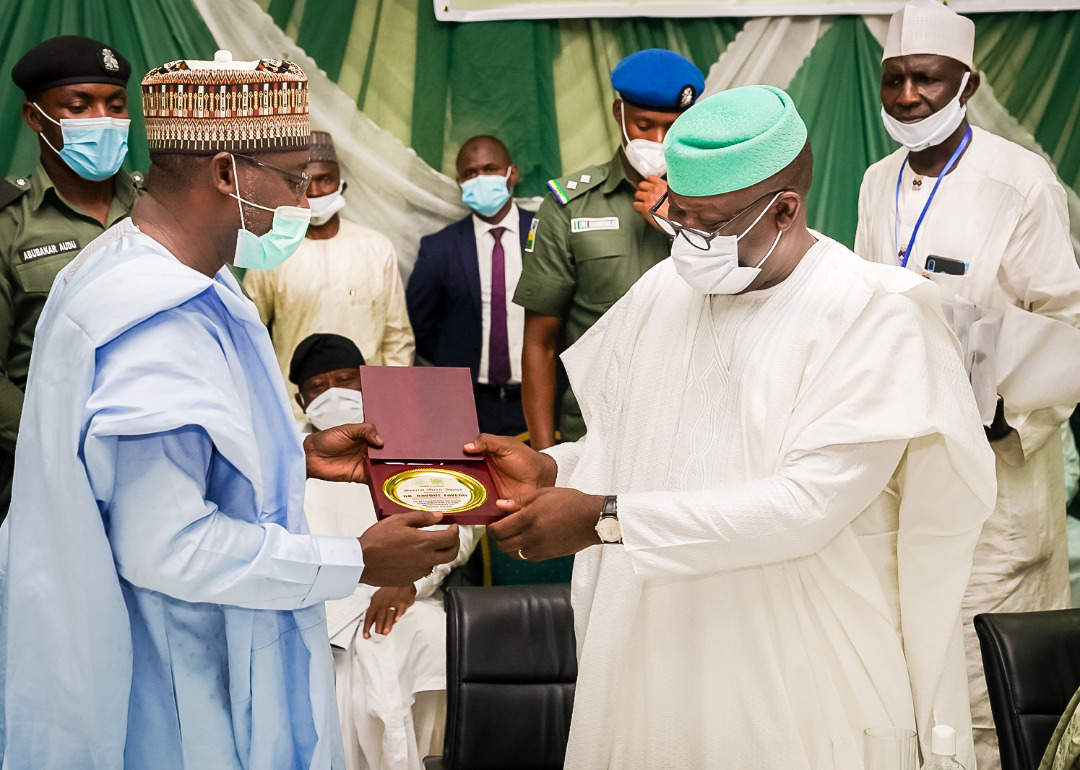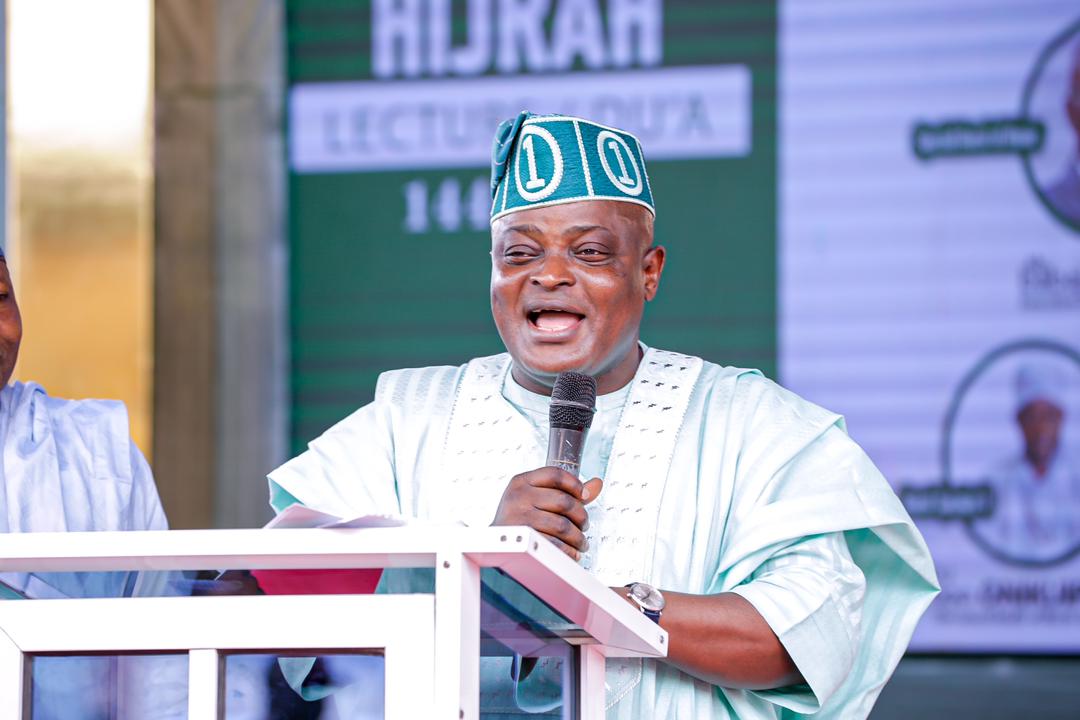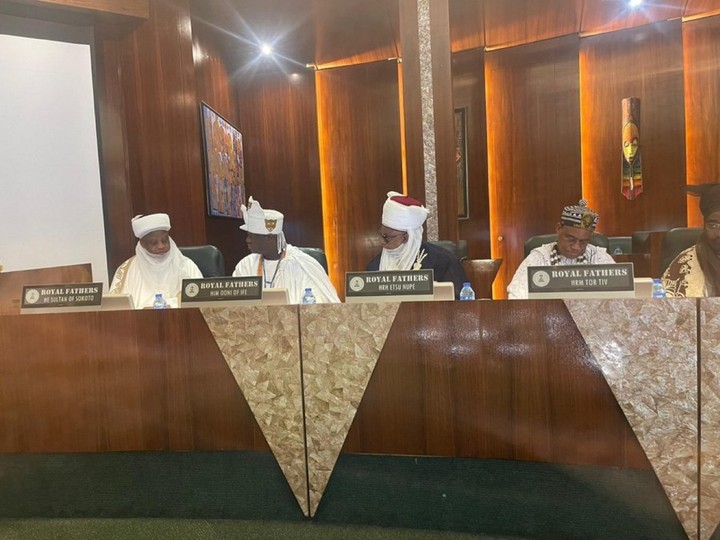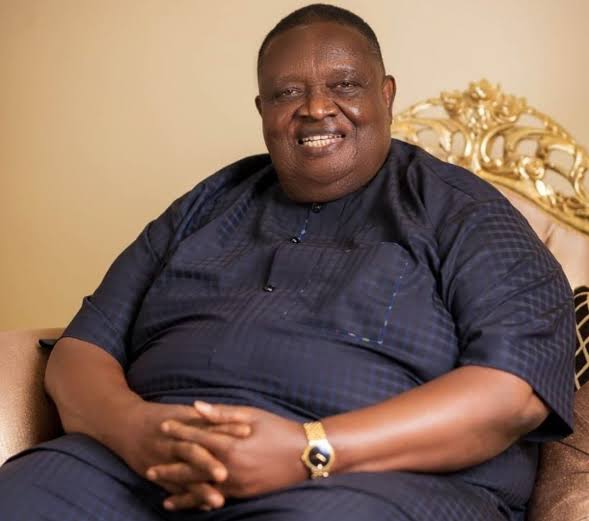The Governor of Ekiti State, Dr. Kayode Fayemi, has advocated a restructuring that will cement the unity of Nigeria and engender a perfect union among its peoples irrespective of their ethnic, religious, cultural and linguistic differences.
Information available to
Sahara Weekly NG revealed that
Fayemi also suggested an equitable revenue allocation formula that will speak to the federalism Nigeria has adopted and give more resources to states and local governments which carry more responsibilities.
According to him, a review of the sharing formulae to 43 per cent for states, 35 per cent to the federal and 23 per cent to the local governments will go a long way to devolve more responsibilities to constituent units and reduce the concentration of powers at the centre.
The Governor made the remarks on Saturday while speaking as the guest lecturer at the 50th Anniversary of the Centre for Historical Documentation and Research (Arewa House) in Kaduna.
Speaking on the topic, “Unfinished Greatness…Towards a More Perfect Union in Nigeria,” Dr. Fayemi, who is also the Chairman of the Nigeria Governors’ Forum (NGF) said building Nigeria to the status of a country that commands global respect is a continuous work in progress.
Dr. Fayemi who insisted that the 1914 amalgamation of the Northern and Southern Protectorates by the British was not a mistake as some have argued, adding that the country can use the diversity to achieve greatness if Nigerians would utilize the inherent opportunities.
He appealed to Nigerians to come together and urgently tackle issues that divide them if the dreams of the founding fathers including the late Premier of Northern Nigeria, Sir Ahmadu Bello, the Sardauna of Sokoto are to be realised by the present generation.
The Ekiti State Governor said all ethnic nationalities should be made to feel important in the Nigerian project hence preference should not be given to a particular ethnic group over others.
Dr. Fayemi explained that Nigeria, with over 250 ethnic nationalities has managed its diversity whereas some countries in Eastern Europe had balkanized into smaller nations while Britain is yet to find a definitive answer to the Irish, Welsh and Scottish question.
Dr Fayemi however identified sincerity in handling the issue of restructuring as a means of giving assurance to stakeholders of the Nigerian project that achieving greatness through unity in diversity was still possible.
He argued that issues of devolution of powers, decentralization, restructuring and such other concepts should not be clothed in ethnic or regional toga but be used as an opportunity to re-imagine and reinvent our country to make it work well for everyone.
Dr. Fayemi said: “In essence, our desire to build a more perfect union should be anchored on the principle of devolution of powers – that is, re-allocation of powers and resources to the country’s federating units. The reasons for this are not far-fetched.
“First, long years of military rule has produced an over-concentration of powers and resources at the center to the detriment of the states. Two, the 1999 constitution, as has been argued by several observers, was hurriedly put together by the departing military authority and was not a product of sufficient inclusiveness.
“Part of the focus of such an exercise should be: what items should remain on the exclusive legislative list and which ones should be transferred to the concurrent list? Other topical issues include derivation principle; fiscal federalism and revenue allocation; land tenure, local government creation and autonomy; etc.
“All points considered, the fiscal burden of maintaining a largely inefficient and over-bloated bureaucracy is a metaphor for shooting oneself on the foot.”
According to him, the evolution of Nigeria’s federalism has not served Nigeria’s best interests and it is not surprising that the polity has witnessed protests at every attempts at constitutional reengineering.
Two prominent examples, he noted, were the 2005 Constitutional Reform Conference convened by President Obasanjo’s administration and the 2014 National Conference at the instance of ex- President Goodluck Jonathan.
He explained that in the two conferences, the delicate issue remains that of restructuring (often dubbed Devolution of Power, Decentralization, True Federalism, etc.) asking “But for how long can we continue to run away from this issue and continue to pretend that somehow it would resolve itself someday?”
Alluding to recent nationwide protests by youths, Governor Fayemi said it was high time the nation’s leaders looked into ways to solve problems which turned an innocuous online protests over police brutality into an avenue to challenge perceived failures to meet demands for good governance.
He said: “This is why anyone who holds a semblance of power or authority in this country should be deeply worried by the events of the past few weeks. What started as an innocuous online protest over police brutality snowballed before our very eyes into a mass movement that assumed more frightening dimensions.
“From the demand to #EndSARS, we have seen vigorous demands for greater accountability, and greater efficiency in government. What I understand the youths to be saying is that we the older generation have failed them by our inability to create a system that supports their dreams and accommodate their aspirations.
“From the language of their protests, we can see clearly that our youths feel pushed to the margin of our nation’s socio-political and economic structures. It is incumbent on us to listen to what they are saying and a lot more to what they are probably not saying yet.
“For over a decade, several analysts have noted that our massive youth population could be a major demographic advantage to our country if it is properly harnessed. Years of neglect and failure to make the right investments to support this population is now, quite predictably, turning it to a major disruptive force and a time bomb.
“I am afraid that the bomb has started to tick, we must therefore act fast and start now to create systems that provides opportunities for our young people and make it possible for them to attain their God-given potentials.
“In responding to the challenges that this moment imposes on us, we must recognize that a business-as-usual approach will no longer be sufficient. What we need is a fundamental re-engineering of our governance system in a way that will make our country work better for everyone.
“I understand the recent protest as a discursive signal that encapsulates the frustration of our young people at multiple levels. We must therefore engage it as such and try to focus on the opportunities that the situation presents.” He added.
Fayemi, who cited the works of Ben Okri and Uthman Dan Fodio, in the lecture concluded that there was urgent need to address injustice if Nigerians truly want the system to work.
” A kingdom can endure with unbelief, but cannot endure with injustice”. May we have the courage and the conviction to confront injustice in our country and make Nigeria work for all of us” he added.

 Business6 months ago
Business6 months ago
 Business6 months ago
Business6 months ago
 celebrity radar - gossips6 months ago
celebrity radar - gossips6 months ago
 celebrity radar - gossips6 months ago
celebrity radar - gossips6 months ago














